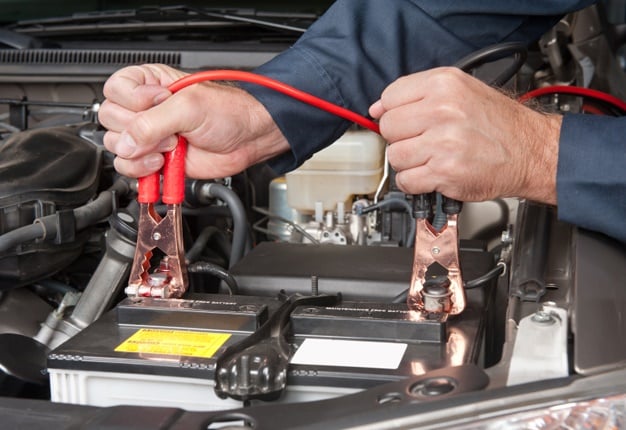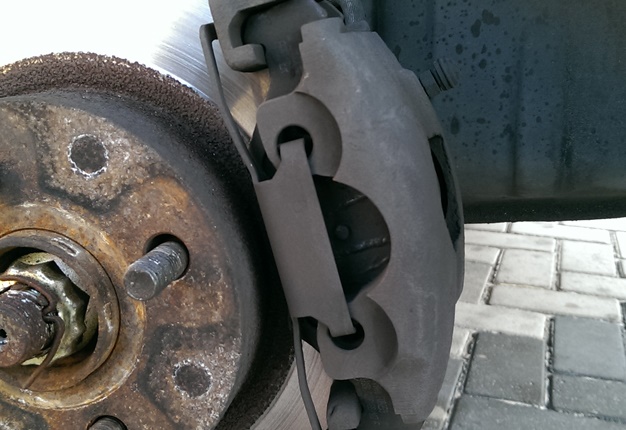As the country awaits President Cyril Ramaphosa to announce plans on gradually lifting lockdown restrictions on Thursday night (April 23), most vehicles are still parked safely in your driveway or garage.
While essential workers have been using their vehicles to get to work, the rest of us have only been driving short trips to get essential groceries or medical supplies. There's also a group of people who have not driven their vehicles at all since lockdown begun almost a month ago as they have not had reason to go out and have opted to stay home to be completely safe.
But just because we're all in lockdown, doesn't mean our cars need to be too. They should be started at least once or twice a week, or if you can, take it for a quick little spin around the block in your area, or even your complex - just always stay safe and practice good hygiene at all times.
With the end date of lockdown still uncertain for many of us it could be a while before our cars get the kind of movement they're used to. This may not seem like an issue, but during elongated periods of your car being stationary, many problems can arise such as flat batteries and poor tyre pressure.
Should lockdown restrictions be lifted soon, its best to make sure your car can start and you don't have any flat tyres when you need to head back to work. Or, you might need to get yourself or a loved one to the emergency room, so it's always important to have your car in top shape - whether you're driving it or not.
READ | Cleaning your car's interior with hand sanitisers during lockdown might not be such a good idea
The kind folk over at Castrol has assembled a team of experts to recommend the following six tips ensuring your car remains in good health, and most importantly, safe for travel.
Image: iStock
1. Prevent a flat battery
When parked in your driveway, most cars will have their alarm and immobiliser switched on protecting the car - however, this will also be slowly draining the vehicle battery. The length of time the battery lasts will depend on the make and model of car along with the age and type of battery, which could range from a couple of weeks to up to three months.
In addition, the alternator in your vehicle charges the battery whilst driving so if you only do infrequent short trips (say once a week to local supermarket), your battery may not get the charge it needs.
• Consider purchasing a battery charger: A battery tender or trickle charger can be connected to your car when not in use and will keep the battery in peak condition.
Alternatively, a standard battery charger can be connected every couple of weeks for a few hours to return your battery to full charge. Key point to consider is that modern engines have different battery types so check you purchase the right charger to ensure you do not damage your battery or shorten its life span (for example modern hybrid engine batteries typically need a more sophisticated charger).
• If you have an electric car it's best to give it a full charge, and keep it plugged in if you can. Its electronics will ensure it stays topped up, and it won’t be drawing charge all the time.
• Regularly run your engine: Letting your engine run for 15-20 mins once a week will allow the alternator on your car to charge the battery. Make sure to do this outside, or leave the garage door wide open for ventilation.
• Jump start might not always be the best option: Modern cars have increasingly complex electrical systems which could potentially get damaged if you use jump start leads. If you are unsure, always check your car owner’s manual or if in doubt contact your car manufacturer or their local dealership for advice.
2. Check your tyre pressure
If a car is stood for a period of time the tyres could develop a ‘flat spot’ on the area where the tyre meets the ground (tyre deforms slightly due to the weight of the car).
• Most flat spots will disappear the next time you drive as the tyres warm up and return to their original shape.
• If you are not planning on driving for a longer period of time you might want to consider increasing your tyre pressure to the maximum cold pressure (you can find this inside the door on many vehicles, or in the owner's manual.) The extra pressure will help the tyres retain their shape more - just remember to return tyres to their correct pressure before your next use of your car.
3. Look after your brakes
If your car has stood for a long period of time there is a small risk that the brake pads may stick to the brake discs which might prevent the car from moving in the future.
• Move the car once a week: Moving the car a small distance (up to a metre) if you have the space will help ensure your brakes do not stick.
4. Empty your car of rubbish
If your car is not going to be driven for a period of time ensure there is no rubbish inside that might smell. With no air moving around inside your car, an old packet of crisps, sweet wrapper or fast food packaging will quickly make the inside of your car smell unpleasant.
5. Stay safe when you need to drive
• Keep all touchpoints clean: When you do have to leave home for essential journeys, try to minimise the potential to contaminate your car by considering all touchpoints.
• Door handles, steering wheel, gear lever, boot release and dashboard buttons are all areas to consider.
• Clean all touchpoints using anti-bacterial or alcohol cleaners before every journey. However, it is important to note that these kind of cleaners could damage your steering wheel or materials in your vehicle. While it can be used, soap and water is always best.
• Consider leaving hand sanitiser, wipes or gloves in the car so you have them available for every journey.
Compiled by Janine Van der Post




 Publications
Publications
 Partners
Partners













